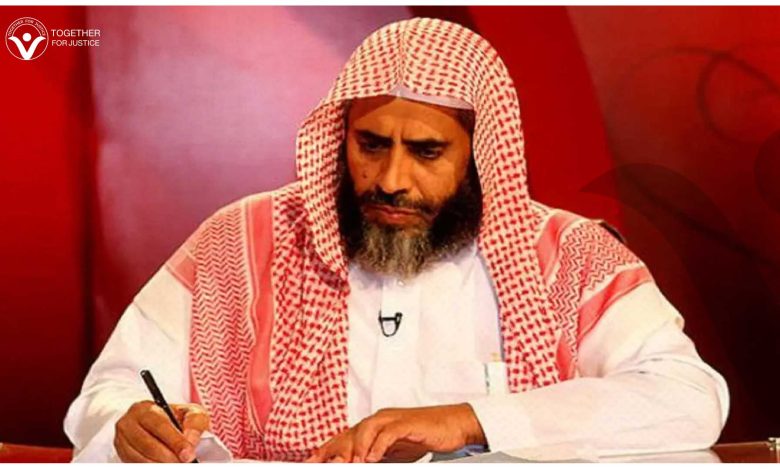Eight Years of Solitary Confinement for a Tweet — The Case of Sheikh Awad Al-Qarni

Eight Years of Solitary Confinement for a Tweet — The Case of Sheikh Awad Al-Qarni
In 2017, Saudi authorities arrested Sheikh Dr. Awad Al-Qarni—prominent legal scholar, academic, and well-known public intellectual—as part of a sweeping crackdown that targeted scholars, writers, activists, and independent voices across the country. His arrest was not an isolated incident but a deliberate step in a broader campaign to silence dissent and extinguish any form of independent thought. Since then, Al-Qarni has spent nearly eight years in a cramped solitary-confinement cell, denied his most basic rights and held under conditions that fall far below international standards of justice and human dignity.
The charges brought against him reflect the deep politicization of the Saudi legal system. They include operating a Twitter account under his real name, sharing political and religious views, communicating with others via WhatsApp, and posting or circulating videos that support certain Islamic political movements—activities that are normally considered protected speech in most countries. Saudi prosecutors transformed these benign expressions of opinion into serious, capital-level offenses, arguing that the use of social media in this context constitutes “rebellion against the state” and a “threat to national security.” Based on these allegations, prosecutors have repeatedly sought the death penalty.
Such accusations highlight the extent to which the judiciary has been weaponized as a tool of political retaliation. Multiple human-rights reports—and statements from his son, Nasser Al-Qarni—indicate that the Sheikh’s confessions were extracted under coercion, in an environment notorious for physical and psychological abuse during interrogations. These revelations raise profound concerns about the legality of the proceedings and strip the case of any semblance of fairness or judicial integrity.
Sheikh Al-Qarni’s ordeal reflects a larger pattern of repression. Over the past years, Saudi authorities have arrested thousands of social-media users for expressing opinions, reposting tweets, or sharing content deemed “inconvenient” to the political leadership. Cases such as that of Salma Al-Shehab—sentenced to 34 years in prison—and Noura Al-Qahtani, who received a 45-year sentence, illustrate how the state has transformed digital expression into a prosecutable crime, turning online platforms into traps for critics rather than spaces for free thought.
The continued solitary confinement of a man in his sixties for nearly eight years is a grave violation of international human-rights norms. Prolonged solitary confinement is recognized globally as a form of psychological torture, especially when used against detainees who have not committed acts of violence or posed any real threat. In this case, isolation is being deployed not as a disciplinary measure, but as a punishment for opinions.
Saudi authorities bear full responsibility for the continued unlawful detention of Sheikh Awad Al-Qarni and for subjecting him to degrading conditions without a fair trial or legitimate charges. The insistence on seeking the death penalty for social-media activity constitutes a dangerous precedent that undermines the core principles of freedom of expression and exposes the extent of political and security overreach in the kingdom.
We call for the immediate and unconditional release of Sheikh Awad Al-Qarni, and urge the international community, human-rights organizations, and relevant UN bodies to fulfill their legal and moral obligations by putting pressure on Saudi authorities to end this grave injustice. Silence toward such violations amounts to complicity, allowing the state to extend its repression and normalize the criminalization of peaceful expression.
Sheikh Awad Al-Qarni’s only “crime” was using his words—nothing more.




